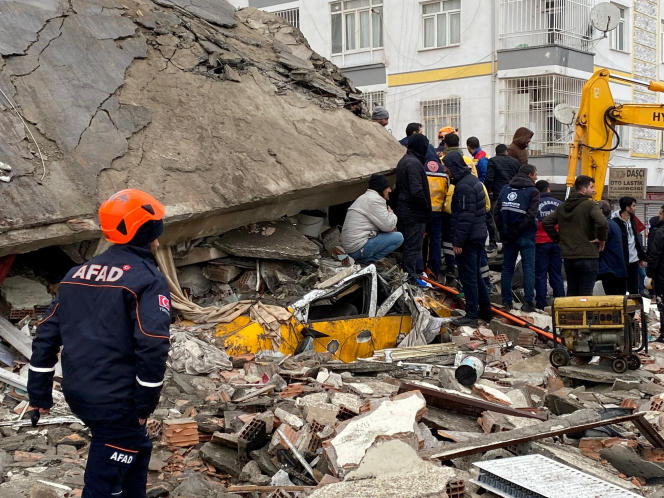The death toll on Saturday rose to more than 44,000 from the devastating earthquake in Turkey and Syria with the body of former Ghana international footballer Christian Atsu also found beneath a collapsed building in Antakya.
The number of people found alive under the rubble have dropped to only a handful in recent days and the head of Turkey’s disaster agency, Yunus Sezer, said rescue operations would be “largely completed” by Sunday night.
State news agency Anadolu initially reported on Saturday three people were found alive nearly two weeks after the the 7.8-magnitude earthquake hit on February 6. But the agency later reported that one of them, a 12-year-old, had died.
Anadolu images showed rescuers placing a man and a woman on stretchers after the married couple and a child spent 296 hours under the rubble in the southeastern Turkish city of Antakya.
The agency later reported three of their children had died including the 12-year-old.
Turkish Health Minister Fahrettin Koca shared a video of the 40-year-old mother in a field hospital receiving treatment. “She is conscious,” he tweeted.
AFP correspondents said rescuers from Kyrgyzstan continued working in Antakya with the hope of finding more people pulled out alive after thermal tests showed signs of life.
Teams on Friday pulled four people alive from the rubble, including a 45-year-old man and a 14-year-old boy, in the surrounding Hatay province.
Lax building standards
Rescues that were initially met with applause and relief, have in recent days been greeted more soberly.
Officials and medics said that 40,642 people had died in Turkey and 3,688 in Syria from the quake, bringing the confirmed total to 44,330. The toll from Syria has remained unchanged for days.
The quake — in one of the world’s most active seismic zones — hit populated areas as many slept, in homes that had not been built to resist such powerful tremors.
The disaster has put pressure on Turkish President Recep Tayyip Erdogan over the slow response to the quake and why his government allowed such poor-quality buildings to be erected.
Turkish officials had promised after a quake in 1999 killed more than 17,000 people in northwestern Turkey that building regulations would be strengthened.
Footballer Atsu’s manager confirmed on Saturday his body had been found beneath a collapsed building in Antakya.
The building where he died, a 12-storey luxury block of flats, was built in 2013 when Turkey had tougher rules on construction.
Atsu’s block toppled over, causing outrage in Turkey over how a relatively new building was unable to withstand a quake.
Turkish police have since arrested the building’s contractor after he tried to flee the country.
‘Not right to leave’
Officers have arrested dozens of contractors as the government promises to crack down on lax building standards.
More than 84,000 buildings either collapsed, need urgent demolition or were severely damaged in the quake, officials said.
One of the areas severely hit was Antakya, an ancient crossroads of civilisations.
The city has suffered several earthquakes — almost one every 100 years — and is no stranger to rebuilding.
“We will clean up and continue living here,” said optician Cuneyt Eroglu, 45, sifting through the wreckage of his shop, surrounded by twisted glasses and paraphernalia.
Unlike other parts of the old town, the street in front of his shop has not yet been cleared of the rubble and twisted metal that engulfed much of the city.
Eroglu, whose family escaped the quake uninjured, is now staying in a tent in a village outside Antakya.
“It wouldn’t be right to leave Antakya,” he said.







